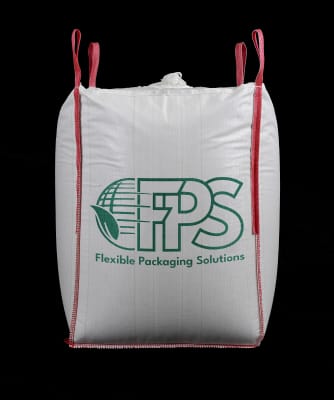In the ever-evolving world of industrial packaging, Flexible Intermediate Bulk Containers (FIBCs) have emerged as a game-changer. These large, durable bags, also known as big bags or bulk bags, are crucial in transporting and storing various materials, from agricultural products to industrial compounds. This article delves into the intricate processes involved in FIBC manufacturing, their environmental impacts, and how they are revolutionizing bulk packaging solutions.
Table of Contents
The Manufacturing Process of FIBCs
FIBC bag manufacturers follow a meticulous process to ensure the production of high-quality bags. This process includes:
- Design and Specification: Collaboration with clients to understand specific requirements like use, capacity, and desired features.
- Material Selection: Using materials like woven polypropylene or polyethylene for strength and durability.
- Fabric Weaving: Creating a strong fabric structure through an intricate weaving process.
- Cutting and Sewing: Precision cutting and stitching to ensure structural integrity.
- Lifting Loops and Mechanisms: Attaching loops and incorporating filling/discharge mechanisms for ease of use.
- Printing and Labeling: Customization with logos, labels, and safety instructions.
- Quality Control and Testing: Ensuring compliance with industry standards and customer specifications.
- Packaging and Shipment: Careful inspection, folding, and packaging for safe transportation.
FIBC Bag Manufacturers – How is a big bag made? This question is addressed through the meticulousness of each stage, ensuring the production of durable and reliable bags.
How FPS Industrial Packaging Leads in FIBC Manufacturing
FPS stands out in FIBC manufacturing by offering high-quality materials and innovative designs. Their expertise in handling heavy filling weights and extreme environments positions them as a leader in the heavy duty bulk bags market. They focus on efficiency, innovation, and sustainability, making their products reach every corner of the globe.
The Impact of Plastic Tax on FIBC Manufacturers
The introduction of plastic taxes, like those in California and the U.K., represents a notable shift in the approach towards managing plastic waste. These taxes are designed to reduce the environmental impact of plastic, particularly focusing on the production of virgin plastic. In response, FIBC (Flexible Intermediate Bulk Container) manufacturers, who often use plastic in their products such as FIBC liners, are adapting to these changes. They are emphasizing process excellence, aiming to reduce their energy and water consumption, and increasingly relying on renewable energy sources. These plastic tax legislations are complex but serve as a crucial prompt for manufacturers to adopt more sustainable practices. This shift is essential not only to comply with new regulations but also to mitigate the financial impact of these taxes and contribute positively to environmental conservation efforts.
Advantages of FIBC Bags in Industrial Packaging
FIBCs offer several benefits, making them a preferred choice for bulk packaging:
- Versatility: Suitable for a wide range of materials and industries.
- Strength and Durability: Capable of handling heavy loads and harsh conditions.
- Efficient Handling: Designed for easy transportation and storage.
- Environmental Benefits: Contributing to sustainable packaging solutions.
Enhancing Efficiency and Safety in Bulk Packaging
The role of FIBC bags extends beyond just being a storage and transportation solution; they play a pivotal part in enhancing operational efficiency and safety in various industries. Here’s how:
- Customization for Specific Needs: FIBC bags can be tailored to meet unique industry requirements. Whether it’s for food-grade materials, chemicals, or construction materials, the customization of size, shape, and materials ensures that each bag perfectly suits its intended purpose.
- Improved Storage Efficiency: Due to their flexible nature, FIBC bags can be easily stored and stacked, optimizing warehouse space. This flexibility also reduces transportation costs, as more products can be moved in fewer trips compared to traditional packaging methods.
- Enhanced Safety Features: With options for anti-static materials, liners for moisture protection, and UV-resistant fabrics, FIBC bags ensure the safety and integrity of the products they hold. This is particularly crucial in industries where contamination or degradation of materials can lead to significant losses.
- Sustainability: In the wake of increasing environmental concerns, FIBC bags offer a more sustainable option. Many are reusable and recyclable, reducing the overall carbon footprint of packaging. This aspect is particularly important as industries and consumers alike are moving towards more eco-friendly solutions.
- Economic Benefits: Despite their high quality and advanced features, FIBC bags are cost-effective. Their durability and reusability offer long-term savings, and their efficiency in storage and transportation further cuts down operational costs.
Conclusion
FIBC bags represent a significant advancement in bulk packaging solutions. By understanding the intricate manufacturing process, recognizing the impact of environmental legislation, and leveraging the benefits of these bags, industries can significantly enhance their operations. Companies like FPS are at the forefront of this revolution, offering innovative and sustainable packaging solutions that cater to a global market. Their commitment to quality and environmental stewardship makes them a key player in the future of industrial packaging.

